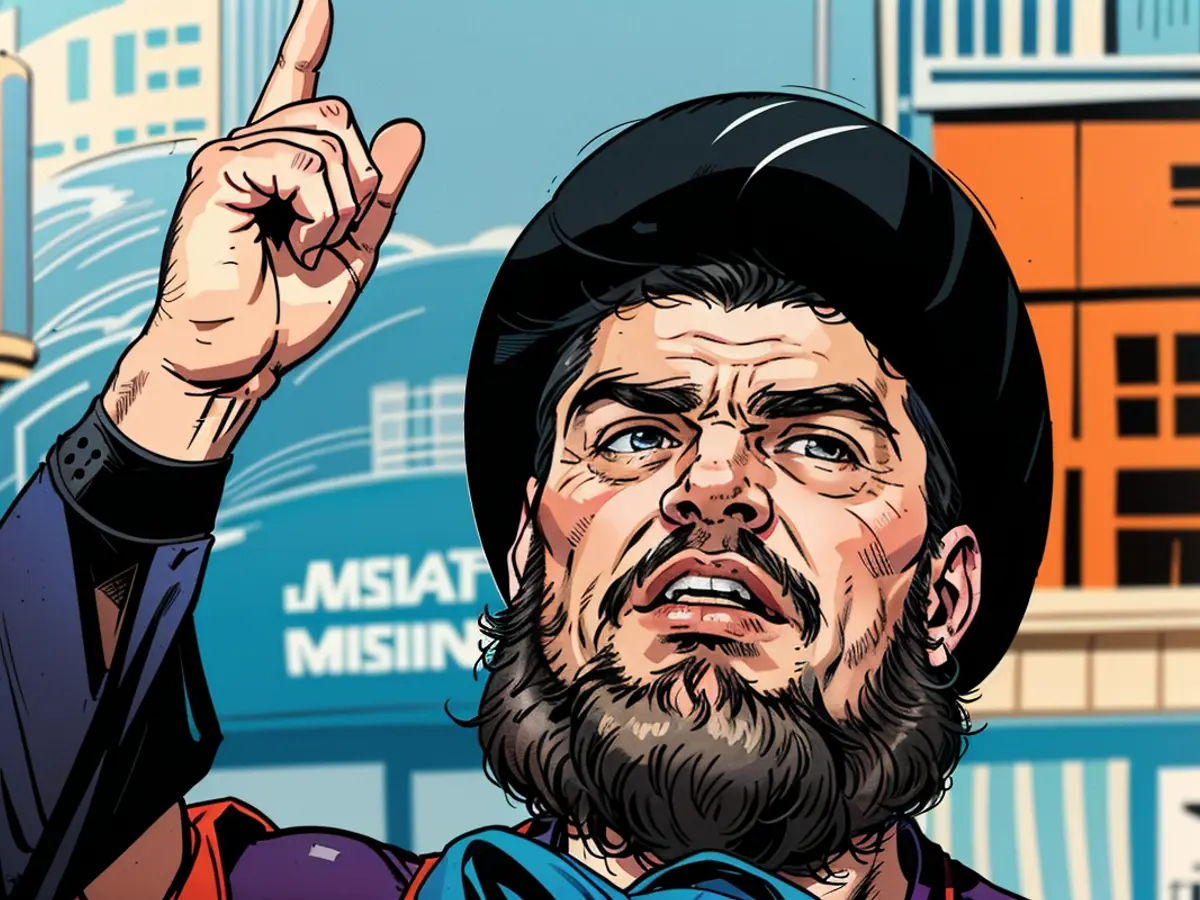Lebanon's figurehead Hassan Nasrallah maintains a close alliance with Tehran.
Since 1992, Hassan Nasrallah had been at the forefront of Hezbollah. His demise, as reportedly confirmed by Israel's army, leaves a significant void. But who was this man who appeared invincible for so long?
Known for his lengthy speeches, Nasrallah was the leader of Hezbollah in Lebanon. He often spoke for hours, always dressed in traditional Shiite attire. Serving as a loyal ally to Tehran, he assumed the role of chief for the Islamic "Party of God" at the tender age of 30.
Amid economic crises and persistent military conflicts with Israel as its arch-enemy, Nasrallah successfully augmented Hezbollah's political influence within Lebanon's multicultural society. However, his alleged death in a Beirut suburb has yet to be confirmed by Hezbollah itself.
Born in 1960 in the impoverished district of Sharawi in Beirut's east, Nasrallah and his family fled to the south of Lebanon during the civil war. He pursued religious studies in Najaf, Iraq, but was expelled due to his oppositional activities. He then sought further education in Qom, Iran, and other locations.
Nasrallah's Political Ascent
With Israel's invasion of Lebanon in 1982, Hezbollah gained prominence, and Nasrallah joined its ranks. The group benefited from both political and military support from Iran. Hezbollah's mission during that time was marked by devastating attacks and kidnappings, which persisted until the end of the civil war in the early '90s. After the assassination of Secretary-General Abbas al-Moussawi by Israel in 1992, Nasrallah was elected to the position.
Following the conflict's end, Hezbollah began its representation in Lebanon's parliament. The organization is involved in charitable work and has a military wing, estimated to consist of several thousands of fighters. This wing is labeled as a terrorist organization by the European Union, while Germany has banned Hezbollah in its entirety since 2020.
Publicly, Nasrallah primarily campaigned against the social and political marginalization of Shiites. His loyal supporters in the Middle East considered him a spiritual and political guide. However, his confrontations with Israel weakened him in recent conflicts. Israel's intelligence operations and bombardments in Lebanon following the Gaza War took a heavy toll on Hezbollah.
Conflict and Negotiation Under Nasrallah
Nasrallah repeatedly broke the fragile peace with neighboring Israel. The death of his eldest son, who was killed in armed combat, elevated his standing within the movement. He also participated in a prisoner exchange with Israel negotiated by Germany in 2004. In the 2006 Lebanon War, Hezbollah showcased its Iranian backing through large-scale rocket attacks.
Following the Hamas terrorist attack on Israel, Hezbollah, a Lebanese Shiite political party and militant group, pledged its support for Hamas for humanitarian and religious reasons. This, in turn, resulted in the displacement of over 60,000 Israelis from the border area. Israel later declared the return of these people as one of its primary objectives.
In mid-September, Israel aired a bombing campaign in Lebanon, following months of mutual shelling. The objective was to debilitate Hezbollah militarily and politically, thereby securing the return of civilians to northern Israel.
An Enduring Legacy
During his tenure, Nasrallah formed alliances with various political factions, including former Christian president Michel Aoun, to broaden his influence. He enjoyed considerable respect in the Shia and Arab worlds. However, his popularity waned as a result of controversies and military conflicts.
Rumors circulated that Nasrallah, as the leader, had masterminded the assassination of former Lebanese prime minister Rafik Hariri. To some, it appeared that Hezbollah, under Nasrallah's leadership, had lost its moral compass.
As with many other politicians, Nasrallah had no foolproof solutions for Lebanon's social and financial issues. It remains to be seen whether his death will bring about a fundamental shift in Lebanon's power dynamics. A retired Lebanese general recently stated that Hezbollah will remain on its present course, regardless of Nasrallah's demise. "Nasrallah always felt vulnerable," he asserted, adding that Nasrallah had already selected his successor in the event of an emergency, as reported by Hescham Djaaber.
The following paragraphs shall apply to the analysis of Hassan Nasrallah's leadership and impact after his alleged demise: His leadership role was officially recognized following the assassination of Secretary-General Abbas al-Moussawi in 1992. Understanding the circumstances surrounding Nasrallah's rise to power is crucial in evaluating his influence and legacy.








